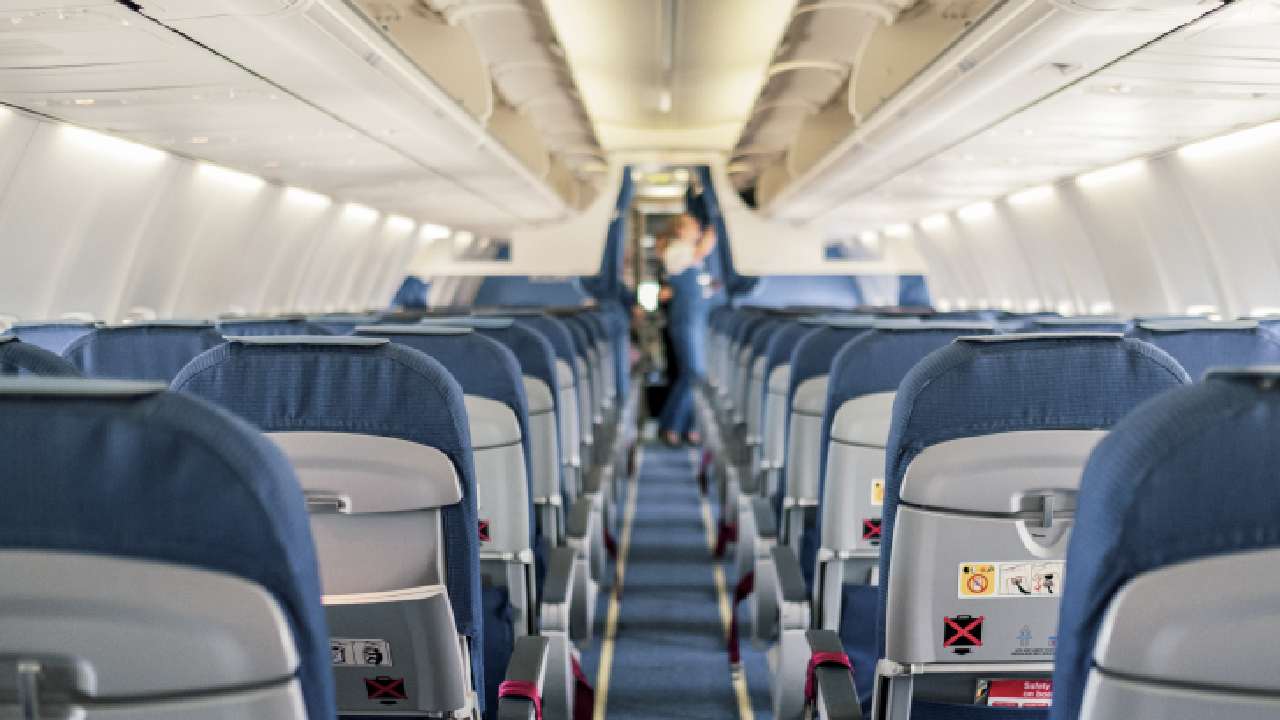7 hidden features on aeroplanes you had no idea existed

The magic button for extra room
Did you manage to snag an aisle seat? Not only can you get up without crawling over people, but you can make your seat extra roomy at the push of a button, thanks to one of the coolest secret aeroplane features. Reach under the armrest closest to the aisle and feel around near the hinge. You should find a button, which will instantly let you swing the armrest up when you push it, according to Travel + Leisure. Once it’s in line with your seat back, it won’t dig into your side anymore, and you can move your legs around without hitting anything.
The hidden handrail
We’re willing to bet you hate it when people aggressively grab your seat on the way to the bathroom. Once it’s your turn to make your way down the aisle, though, you realise you have no choice but to follow suit – or do you? Flight attendants don’t just touch the ceiling for fun when they walk; the bottom of the overhead compartment has a scalloped area that gives better grip when walking down a moving aeroplane, according to Condé Nast Traveler. Next time you need to get up, reach to the ceiling for balance.
A secret sleeping area
A long-haul flight is hard enough on passengers, but imagine being a pilot or flight attendant trying to make it through a 14-hour workday. It’s an exhausting job, so some planes, like Boeing 777 and 787 Dreamliner planes, have secret passageways that let staff get some decent shut-eye, according to Insider. A locked door near the front of the plane or a door posing as an overhead bin hides the entrance to a set of beds, kept private with thick curtains.
Hooks on the wings
If you peek out the window to an Airbus plane’s wing, you can spot yellow bumps with holes in the middle on an otherwise smooth, white surface. If there’s an emergency water landing, the wings would be very slippery for passengers trying to get to the inflatable slide that would have deployed. To help travellers get off without falling, the easy-to-miss aeroplane features let cabin crew slip a rope through one hook and fasten it to the next, according to pilot “Captain” Joe. Passengers could hold on to the rope while on the plane to make it away from the plane safely.
Triangle above the window
Scan the wall of your plane; above four windows, you’ll see a black triangle. Each one lines up with the edge of the aeroplane’s wing, according to pilot “Captain” Joe. If a flight attendant needs to check the aeroplane’s slats or flaps – the moving parts on a wing – they’ll know exactly where to go for the best view. If you’re getting motion sick on a plane, you might want to see if you can move to a seat between the triangles. The wings are the plane’s centre of gravity, so sitting between them would give you the smoothest ride.
Holes in the windows
Look closely at an aeroplane window and you’ll spot something weird: a little hole in the bottom. Take an even closer look and you’ll realise that unlike other windows, this one is made of three panes, and the hole is in the middle one. The quirk is there to protect against the pressure drop of flying high into the atmosphere, according to Slate. As a plane ascends, the pressure outside drops massively, but the cabin is designed to stay at a comfortable pressure. That leaves a big difference in pressure inside and outside of the plane. The outside window takes on most of that pressure, and the hole in the middle one helps balance the pressure difference. The inner window is just to protect the middle one.
Hidden hand cuffs
If passengers are getting unruly, flight attendants have the right to restrain them. In the US, they might use typical cop-style cuffs, but most will use plastic restraints similar to zip ties, according to Express.
Images: Getty
